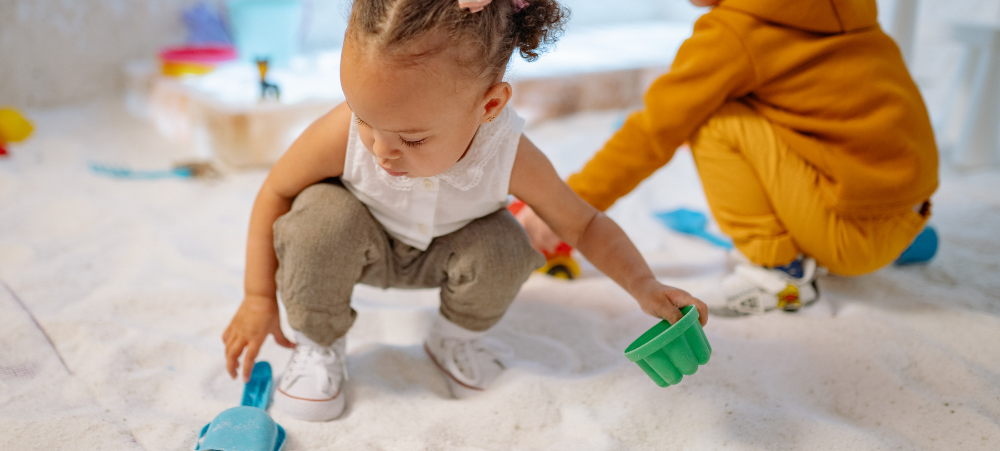Play is more than just fun—it’s how young children learn, grow, and build the foundation for future success. During the early years, a child’s brain develops faster than at any other time in life. Every interaction, every game, and every giggle is a chance to boost early brain power.
So, how can you make the most of playtime without turning it into school time? Easy. Focus on engaging, age-appropriate activities that nurture creativity, communication, motor skills, and problem-solving—while still being loads of fun.
Let’s explore purposeful play ideas backed by child development experts.
🧠 Why Play Matters
According to Harvard University’s Center on the Developing Child, early experiences shape brain architecture. Play builds:
- Cognitive skills like memory, attention, and problem-solving
- Emotional resilience and social understanding
- Language and communication abilities
- Motor coordination and physical health
Play is the child’s version of work—it’s how they explore and make sense of the world.
📚 Source: Harvard Center on the Developing Child
🎨 Purposeful Play Activities (Ages 1–5)
1. Sensory Play
Let kids explore different textures, smells, and sounds. Sensory bins filled with rice, pasta, or sand encourage curiosity and fine motor skills.
Try this: Fill a tray with dry lentils and hide small toys inside for your toddler to “discover.”
2. Pretend Play
Whether it’s running a pretend shop, caring for a doll, or playing “kitchen,” imaginative play builds emotional intelligence, empathy, and vocabulary.
Pro tip: Join in! Pretending together strengthens your bond and models storytelling and conversation.
3. Building Blocks and Puzzles
These classics boost spatial awareness, hand-eye coordination, and logic.
Try this: Give your child different shapes and ask them to “build a house” or “make a car.”
4. Read Together Daily
Reading builds language skills and imagination. Let your child choose the book, and talk about the pictures, characters, and emotions.
🧠 Bonus: According to the American Academy of Pediatrics, reading aloud from birth promotes brain development and stronger parent-child relationships.
5. Music and Rhythm Games
Dancing, clapping, and singing to music enhance memory, auditory processing, and language rhythm.
Try this: Play freeze dance or tap to the beat with pots and spoons.
6. Nature Walks and Outdoor Play
Exploring outside supports problem-solving, physical health, and awareness of the environment.
Try this: Collect leaves or stones and sort them by size, colour, or texture when you get home.
7. Water Play
Splashing in the bath or a tub of water with cups, toys, and funnels builds cause-and-effect understanding and coordination.
Always supervise closely!
8. Simple Sorting Games
Sort toys by colour, size, or shape. This early math concept strengthens categorisation and critical thinking.
Try this: “Can you find all the red blocks?” or “Let’s group the animals together.”
💡 Tips for Parents
- Follow their lead: Let your child choose what interests them and build on it.
- Less is more: You don’t need fancy toys. Simple, open-ended materials encourage creativity.
- Keep it unstructured: Give space for free play alongside structured activities.
- Make it social: Talk, narrate, and ask open-ended questions during play.
🧩 Final Thoughts
The best part about purposeful play? Your child doesn’t even know they’re learning—because it’s fun! With just a few simple tools and lots of love, you’re helping shape a bright, resilient, and curious little brain.
So go ahead, get messy, get silly, and play with purpose.
We understand that there are many aspects that encompass a Mother, Father or Child and strive toward providing resources and services that accommodates this.
Our content is aimed to inform and educate families on issues starting from pregnancy through to the challenges of the teen-age years.
- Say Hello to the Ultimate Holiday Brunch Bite - December 17, 2025
- Tiny Toons Looniversity Returns: Meet the Voice Behind Plucky and Hamton! - December 12, 2025
- From Pain to Possibility: Panado®’s New Marketing Campaign, Highlights The Joy Of Pain Relief - December 10, 2025






1 thought on “Playtime with Purpose: Activities That Build Early Brain Power”
education made fun for kids. Absolutely love it!!!!!!❤️